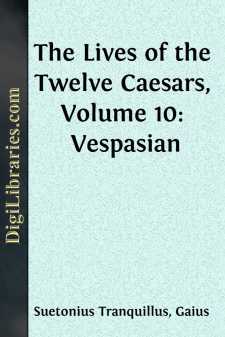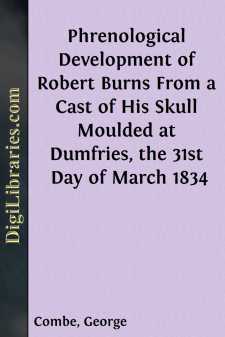Categories
- Antiques & Collectibles 13
- Architecture 36
- Art 48
- Bibles 22
- Biography & Autobiography 813
- Body, Mind & Spirit 142
- Business & Economics 28
- Children's Books 13
- Children's Fiction 10
- Computers 4
- Cooking 94
- Crafts & Hobbies 4
- Drama 346
- Education 46
- Family & Relationships 57
- Fiction 11828
- Games 19
- Gardening 17
- Health & Fitness 34
- History 1377
- House & Home 1
- Humor 147
- Juvenile Fiction 1873
- Juvenile Nonfiction 202
- Language Arts & Disciplines 88
- Law 16
- Literary Collections 686
- Literary Criticism 179
- Mathematics 13
- Medical 41
- Music 40
- Nature 179
- Non-Classifiable 1768
- Performing Arts 7
- Periodicals 1453
- Philosophy 64
- Photography 2
- Poetry 896
- Political Science 203
- Psychology 42
- Reference 154
- Religion 513
- Science 126
- Self-Help 84
- Social Science 81
- Sports & Recreation 34
- Study Aids 3
- Technology & Engineering 59
- Transportation 23
- Travel 463
- True Crime 29
Sort by:
CHAPTER I. A BRIEF ACCOUNT OF THE DISCOVERY OF THE MISSISSIPPI.—DESOTO'S EXPEDITION,—HIS DEATH,—THE FATE OF HIS PARTY, ETC. On a recent excursion to the Crescent City, I collected some facts and statistics which are respectfully submitted to the public. In attempting a description of this magnificent emporium of commerce, as it exists at the present day, I will briefly allude to its early...
more...
CHAPTER I. The spring has come again to the hills and valleys of our home. The day awakes, a breeze moves strongly through the forest, as if its task were to carry away the lingering night; the birds begin to twitter, and here and there an early lark utters his note. Among the pine-trees, with their fresh green needles, a whispering and rustling is heard. The sun has risen above the mountaintop, and...
more...
CHAPTER I TROUBLED TIMES "And what do you think of it all, good Father?" "'Tis a difficult question, my son, and I am glad that it is one that wiser heads than mine will have to solve." "But they don't seem to try to solve it; things get worse and worse. The king is but a lad, no older than myself, and he is in the hands of others. It seems to me a sin and a shame that...
more...
by:
Wolfram Eberhard
Chapter One PREHISTORY 1 Sources for the earliest history Until recently we were dependent for the beginnings of Chinese history on the written Chinese tradition. According to these sources China's history began either about 4000 B.C. or about 2700 B.C. with a succession of wise emperors who "invented" the elements of a civilization, such as clothing, the preparation of food, marriage, and...
more...
T. FLAVIUS VESPASIANUS AUGUSTUS. (441) I. The empire, which had been long thrown into a disturbed and unsetted state, by the rebellion and violent death of its three last rulers, was at length restored to peace and security by the Flavian family, whose descent was indeed obscure, and which boasted no ancestral honours; but the public had no cause to regret its elevation; though it is acknowledged that...
more...
by:
George Combe
The cast of a Skull does not show the temperament of the individual, but the portraits of Burns indicate the bilious and nervous temperaments—the sources of strength, activity, and susceptibility; and the descriptions given by his contemporaries of his beaming and energetic eye, and the rapidity and impetuosity of his manifestations, establish the inference that his brain was active and susceptible....
more...
CHAPTER I. Some ten years before the revolt of our American colonies, there was situate in one of our midland counties, on the borders of an extensive forest, an ancient hall that belonged to the Herberts, but which, though ever well preserved, had not until that period been visited by any member of the family, since the exile of the Stuarts. It was an edifice of considerable size, built of grey stone,...
more...
For many years this work has been known under the title of Letters to Eugenia. The secretive character of those, however, into whose hands the manuscript at first fell; the singular and yet actual pleasure that is caused generally enough in the minds of all men by the exclusive possession of any object whatever; that kind of torpor, servitude, and terror in which the tyrannical power of the priests...
more...
The Beginning—in which Several Important Personages are Introduced. There existed, not many years ago, a certain street near the banks of old Father Thames which may be described as being one of the most modest and retiring little streets in London. The neighbourhood around that street was emphatically dirty and noisy. There were powerful smells of tallow and tar in the atmosphere, suggestive of...
more...
by:
Agnes Blake
THOUGHT CAPACITY IN ANIMALS It was in the year 1904 that the first experiments towards understanding an animal's ability to think were brought into public light. Wilhelm von Osten then introduced his stallion Hans II to all who seemed interested in the subject, and the most diametrically opposed opinions were soon rife with regard to the abilities of this horse, to which von Osten maintained he...
more...











